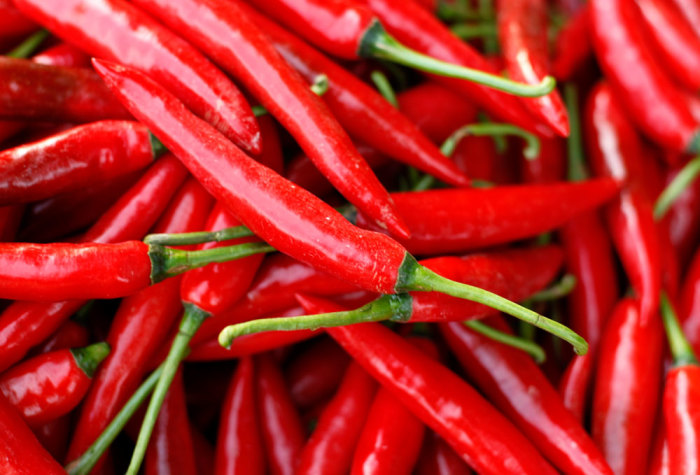Eating Spicy Foods May Lead to a Longer Life – A Heated Debate

If you're one of the 54 percent of Americans who like their food hot and spicy, then here's some good news: Researchers in China suggest that regularly eating spicy foods could lead to a longer life.
A four-year study conducted by the Chinese Academy of Medical Sciences revealed that eating spicy foods on a daily, or almost daily, basis might lower the overall risk of premature death by up to 14 percent. The study also appears to connect the hot diet ingredients with the delay of premature deaths caused by cancer, ischemic heart disease and respiratory system ailments. Although only observational and with no formal conclusions released, the study does suggest that additional research may be valuable to identify how much of which specific spices might contribute to the death-delaying effect.
The study was conducted between 2005 and 2008 on more than 510,000 Chinese citizens and included another seven-year follow-up period. Participants were associated with the China Kadoorie Biobank, a Chinese research institute that investigates the genetic and environmental causes of chronic diseases in the Chinese population. After the initial screening (achieved through questionnaires, physical measurements and blood analysis), the study subjects were monitored through established registries and health insurance providers, all of which maintained databases for the purpose of the research. Future data will also be reviewed and analyzed to assess changes in risk factors in the study population. The study's purpose is to advance comprehensive understanding of the causes of chronic diseases in China and other countries.
More than 20,000 study subjects died during the study's follow-up period, and their diets and causes of death were investigated. Taking into account age and other significant factors, analysis revealed that people who had eaten hot spices six to seven times a week had lived approximately 14 percent longer than those who ate the spices less than once per week. The finding was similar even when the deaths were attributed to cancer, heart or lung diseases.
What wasn't investigated was whether it was the spice that made the difference or other factors consistent in the lives of the longer-lived population. The majority of the longer-lived participants lived in more rural communities with less exposure to smog or other toxic environmental conditions associated with high population density.
Dr. Nita Forouhi, a researcher of Epidemiology at the University of Cambridge (which collaborated on the study), called the findings "hypothesis-generating," as opposed to conclusive, in an editorial in the BMJ. Peppers and other spicy foods contain capsaicin, a chemical that causes a burning sensation on human mucous membranes. Capsaicin and other "heated" chemicals are known to have anti-microbial, anti-oxidant, anti-inflammatory and anti-cancer properties. They also are believed to contribute to higher rates of fat-burning in overweight people.
Some medical community members are skeptical of the findings, not because of what they appear to present, but because of how the study was conducted. Daphne Miller, an associate clinical professor at the University of California San Francisco, identified her personal challenges with the study. She told CNN that there was no identification of exactly which peppers or spicy foods were consumed; the form those peppers/foods may have been in at the time of consumption (dried, fresh or oiled); how they may have been cooked; or what other ingredients may have been included in the dish at the same time.
Still other researchers suggest that the longer-lived people may simply have the propensity to eat more spicy foods, and that the content of their diet is not as important in explaining their longevity as other aspects of their lifestyle. "Is it a biological or behavioral mechanism that caused the skew in the study numbers?" asked bio-psychologist John E. Hayes in a CNN interview. Hayes is an associate professor of food science and the director of the Sensory Evaluation Center at Penn State University.
Other diet ingredients like garlic and curry are believed to protect against cancer and may be beneficial to lower cholesterol and blood pressure, said registered dietician Lona Sandon on Philly.com. If nothing else, she continued, "These spices add flavor and fun to food, but not calories or other risk of harm."
The study identifies several theories still in need of evidence. Its lead author, Lu Qi is an associate professor of nutrition and epidemiology at the Harvard T.H. Chan School of Public Health in Boston. He noted that animal studies have demonstrated that fresh spices help to improve cholesterol levels, control inflammation and reduce oxidative stress. While human studies are "sparse," the animal tests suggest that dietary modification to include fresh, hot spices might positively impact human populations, too.
It has long been said that variety is the spice of life, but it may turn out that pepper is the spice of a longer life.




























